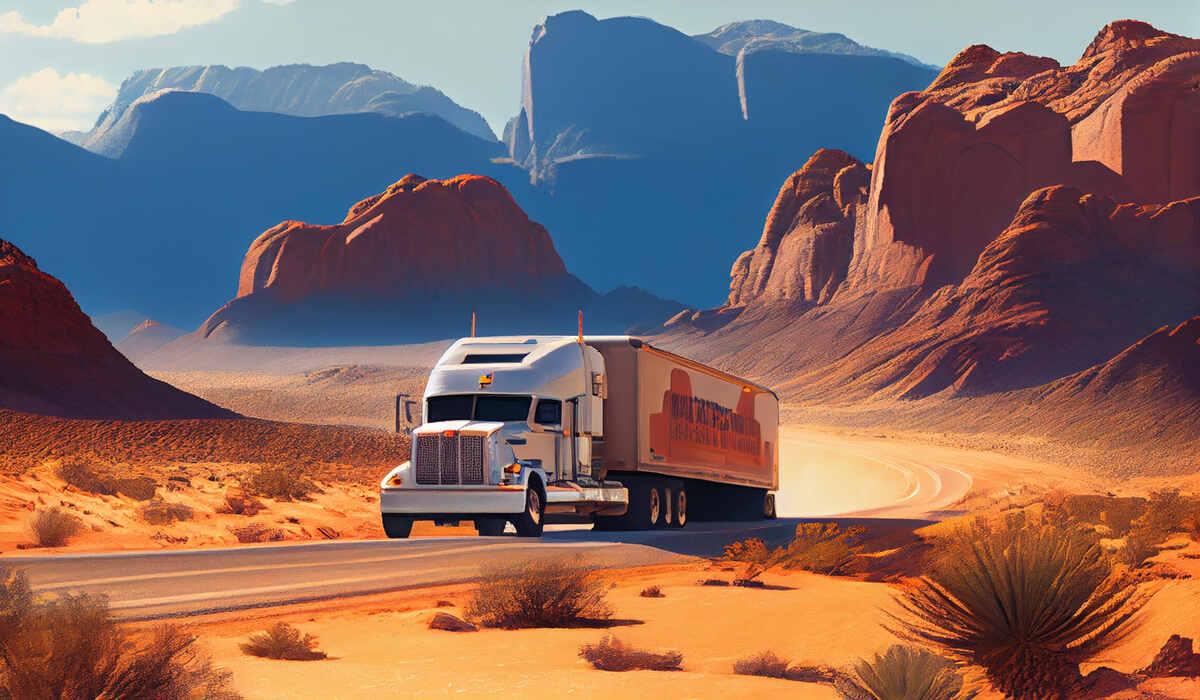Table of Contents
In the dynamic landscape of the modern trucking industry, technological advancements have become integral to enhancing efficiency, safety, and sustainability. From connected vehicle systems to autonomous driving technologies, the evolution of trucking technology continues to revolutionize the way goods are transported across the country. In this article, we explore recent advancements in trucking technology and their transformative impact on the industry.
The Evolution of Trucking Technology
The history of trucking technology is rich with innovation and progress. From the invention of the diesel engine to the introduction of air brakes, key milestones have shaped the way trucks are designed and operated. Over the years, advancements such as satellite tracking systems and electronic logging devices (ELDs) have further revolutionized the industry, enabling real-time monitoring of vehicle performance and compliance with regulatory requirements.
Connected Vehicle Technology
Connected vehicle technology represents a significant leap forward in the trucking industry. By leveraging sensors and wireless communication systems, connected vehicles enable real-time monitoring of vehicle performance, fuel efficiency, and maintenance needs. Fleet managers can use this data to optimize routes, reduce downtime, and improve overall fleet performance. Furthermore, connected vehicle technology enhances safety by providing insights into driver behavior and enabling proactive measures to prevent accidents involving trucks.
Connected vehicle technology also enables seamless communication between trucks, fleet management systems, and other vehicles on the road, facilitating coordination and collaboration across the supply chain. With the ability to track shipments in real-time, monitor driver performance, and respond swiftly to changing conditions, connected vehicle technology is revolutionizing the way trucking companies operate, driving efficiency, safety, and profitability to new heights. As the technology continues to evolve, the possibilities for innovation and improvement in the trucking industry are limitless.
Telematics and Fleet Management Solutions
Telematics technology has emerged as a cornerstone of modern fleet management. By collecting and analyzing data on vehicle location, driver behavior, and route optimization, telematics systems empower fleet managers to make informed decisions and maximize efficiency. These solutions offer benefits such as improved fuel economy, reduced maintenance costs, and enhanced safety. With telematics, fleet operators can streamline operations, increase productivity, and stay competitive in the rapidly evolving trucking industry.
Autonomous Trucking Technology
The advent of autonomous trucking technology promises to revolutionize the way goods are transported. Autonomous driving features such as lane departure warning systems and adaptive cruise control enhance safety and efficiency on the road. While fully autonomous trucks are still in the testing phase, ongoing research and development efforts hold promise for the future of the industry. However, challenges such as regulatory hurdles and public perception must be addressed before autonomous trucks become widespread.
Sustainable Trucking Technology
Sustainability is an increasingly important consideration in the trucking industry. Advancements in alternative fuel vehicles, electric trucks, and hybrid powertrains offer opportunities to reduce emissions and environmental impact. Sustainable trucking technology not only benefits the environment but also helps fleet operators reduce fuel costs and comply with increasingly stringent regulations. By investing in sustainable technology, trucking companies can demonstrate their commitment to corporate responsibility and contribute to a greener future.
The Future of Trucking
Looking ahead, the future of trucking technology is filled with possibilities. Emerging technologies such as platooning and vehicle-to-vehicle communication hold promise for further improving efficiency and safety on the road. Additionally, advancements in artificial intelligence and blockchain have the potential to streamline operations and enhance transparency in the industry. As tech continues to evolve, the trucking industry must adapt to stay competitive and meet the demands of a rapidly changing world.
Advancements in trucking technology are transforming the way goods are transported and reshaping the trucking industry as we know it. From connected vehicle systems to autonomous driving technologies, the possibilities are endless. By embracing innovation and investing in the latest technologies, fleet operators can improve efficiency, enhance safety, and drive sustainable growth in the ever-evolving world of trucking. As we look to the future, the possibilities are limitless, and the opportunities are boundless.


